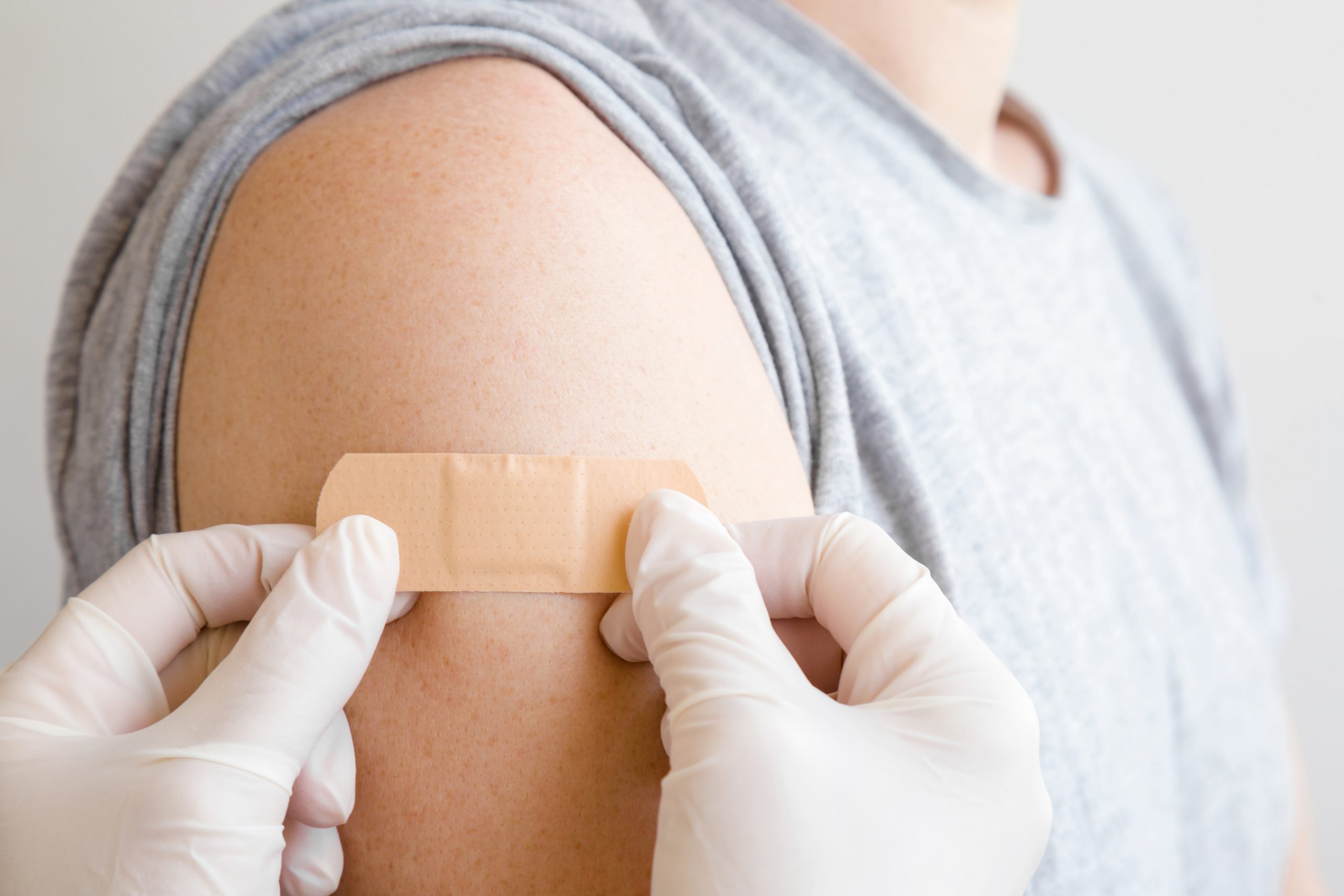This article appeared in MLive. Read more here.
Very different parts of Michigan – Detroit and Oscoda County – are seeing the state’s lowest child immunization rates as health officials sound alarms about the percentage of children who have not received routine vaccinations.
Marquette County in the Upper Peninsula and Bay County, which encompasses Bay City, are seeing the best rates, according to the Michigan Care Improvement Registry.
As of June, fewer than 68% of Michigan children 19 to 36 months have received required vaccinations for diphtheria, tetanus and whooping cough; polio; measles, mumps and rubella; hepatitis B; haemophilus influenza type b, which can cause meningitis; chicken pox; and pneumococcal disease, according to registry data.
Ten years ago, 74% of children had these inoculations and the number stayed well above 70% until 2020, when it dropped to 70.1% while the state shut down nonessential services. The rate has not, however, since recovered. Instead, it continues to decrease. It was 69% in June 2021.
When factoring in hepatitis A vaccinations, which are recommended but not required for school, the numbers are even lower. Less than 55% of Michigan children 19 to 36 months received all recommended vaccine series. The rate was about the same in June 2021. It fell below 54% in June 2020. At the end of 2019, before the introduction of COVID, it was about 58%.
“If you take anything away from this meeting this morning, please take away the fact that vaccination is safe and effective and that under vaccination has serious consequences. And where we are right now as a state presents our children with serious risk,” Veronica Valentine McNally said at a press event on Thursday, Aug. 18. She is a lawyer and president of the Franny Strong Foundation, a vaccine advocacy group established in 2012 in honor of McNally’s daughter Francesca Marie, who died of pertussis or whooping cough at 12 weeks.
Lower immunization rates could lead to comebacks of diseases long ago largely eradicated in the United States – just last month, New York reported a case of polio, the first in the United States since 2013.
It has been decades since Michigan’s numbers dipped below 70%, said Terri Adams, director of immunization for the Michigan Department of Health and Human Services, and though numbers have dropped across the country, Michigan ranks in the bottom half of U.S. states.
Michigan was among the first states to shut down early in the COVID-19 pandemic, noted McNally, and people were not going regularly to see doctors and pediatricians.
“I think that there was a fear of getting your child out without a COVID vaccine for a very long time,” Adams said, recognizing young children were the very last group approved for COVID-19 vaccines.
Health departments across the state shifted their limited resources to pandemic response. Local offices for the Special Supplemental Nutrition Program for Women, Infants and Children started doing virtual check-ins.
Further, hesitancy about the COVID-19 vaccines, widely questioned, has seeped into conversations about routine vaccines, given to American kids for decades, doctors have said.To see how each county in the state and Detroit, the only city in Michigan with its own health department, is fairing, see the map here.
What stops people from getting their children vaccinated or up to date on immunizations varies by community. The state is looking at having ambassadors in some areas, and state health department representatives have met with local health officials in 15 departments with the lowest rates in the state. “We help them with messages. What is working in your region? What is not working in your region?”
Some in urban areas have cited lack of trust in the government or health care, Adams said. In rural areas, people value personal rights and resent government infringement, she said.
“So, it depends on who the message is coming from and how the messages are delivered,” Adams said.
Only 21 counties have rates above 60%. Keweenaw County, a sparsely populated area of the northernmost U.P., joins Detroit and Oscoda County with rates below 40%.
Hillsdale and Cass County in southern Michigan also have low rates. Both counties too rank at the bottom when looking at counties by COVID-19 vaccination rates.
Health officials recommend children receive their COVID-19 inoculations in addition to those required.
“COVID-19 is a crisis that won’t disappear before school starts. What we especially do not want are outbreaks of vaccine-preventable diseases alongside the COVID-19 pandemic,” Dr. Natasha Bagdasarian, Michigan’s chief medical executive, said in a statement.
Doctors and others urge parents or caregivers to speak with their doctors about immunizations.
“I want parents to understand that having questions is a good thing. It makes you a better parent,” said McNally, who founded the “I vaccinate” campaign.
Make those medical appointments, authorities urge.
Well-child visits are important not only immunization-related reasons, but to monitor children’s growth, development and health, said Dr. Joe Fakhoury, pediatric hospitalist with Bronson Pediatric Medicine Hospital Specialists in Kalamazoo.
The plea is not to add to families concerns, Fakhoury said.
Talking to doctors and assuring children are current with vaccinations eliminates stress. “So, when they do return to school and after-school activities and various other things, the worry and concern that you might have about your kid getting sick… or spreading vaccine-preventable diseases is going to be lessened.”

